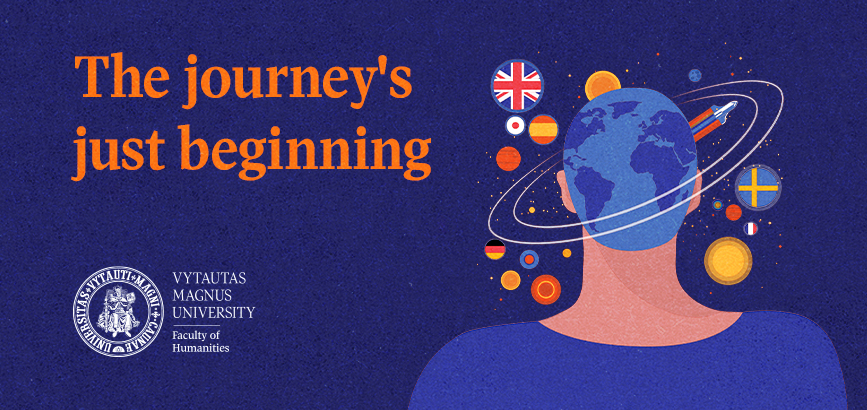Research
Research is seen by all members of the Faculty as a cornerstone for the international reputation. The major research areas reflect the interests of academic staff. The departments of philology specialise in different languages, literatures and cultures (Lithuanian, English, German, French, and Italian). The research is carried out in the fields of general linguistics, sociolinguistics, psycholinguistics, cognitive, corpus, text and applied linguistics, literary studies, cross-cultural communication, translation studies, and language acquisition. The topics and methods of analyses applied are very diverse. Literary studies focus on contemporary prose fiction, literature for children and young adults, eco-criticism, border studies and digital literature, narratological approaches to literary structures, comparative studies of foreign and Lithuanian language, literature and culture, Lithuanian exile and emigration literature, and relations between literature and the media. The field of linguistic research includes the topics on morphology, syntax, experimental phonetics, synchronic accentology, dialectology, lexicology, semantics, lexicography, pragmatics, (multimodal) discourse analysis, contrastive studies of foreign languages and Lithuanian, monolingual and bilingual language acquisition, the language of business and intercultural communication, multilingualism and language policy. The research focus of the Centre of Computational Linguistics is on language standards, natural language processing, machine translation, as well as automatic morphological and syntactic analysis. Other areas of research include topics in ethnology and folklore, Lithuanian mythology, philosophy in postmodern times, relations between the nation and the state.
In fostering research activities, the Faculty seeks to establish directions of common interest for international groups of researchers that should ensure the production of joint publications. The Faculty is involved in joint projects with foreign universities; it organizes joint conferences, symposia and seminars for doctoral students and consistently works towards including more and more young scientists in international research programmes.












